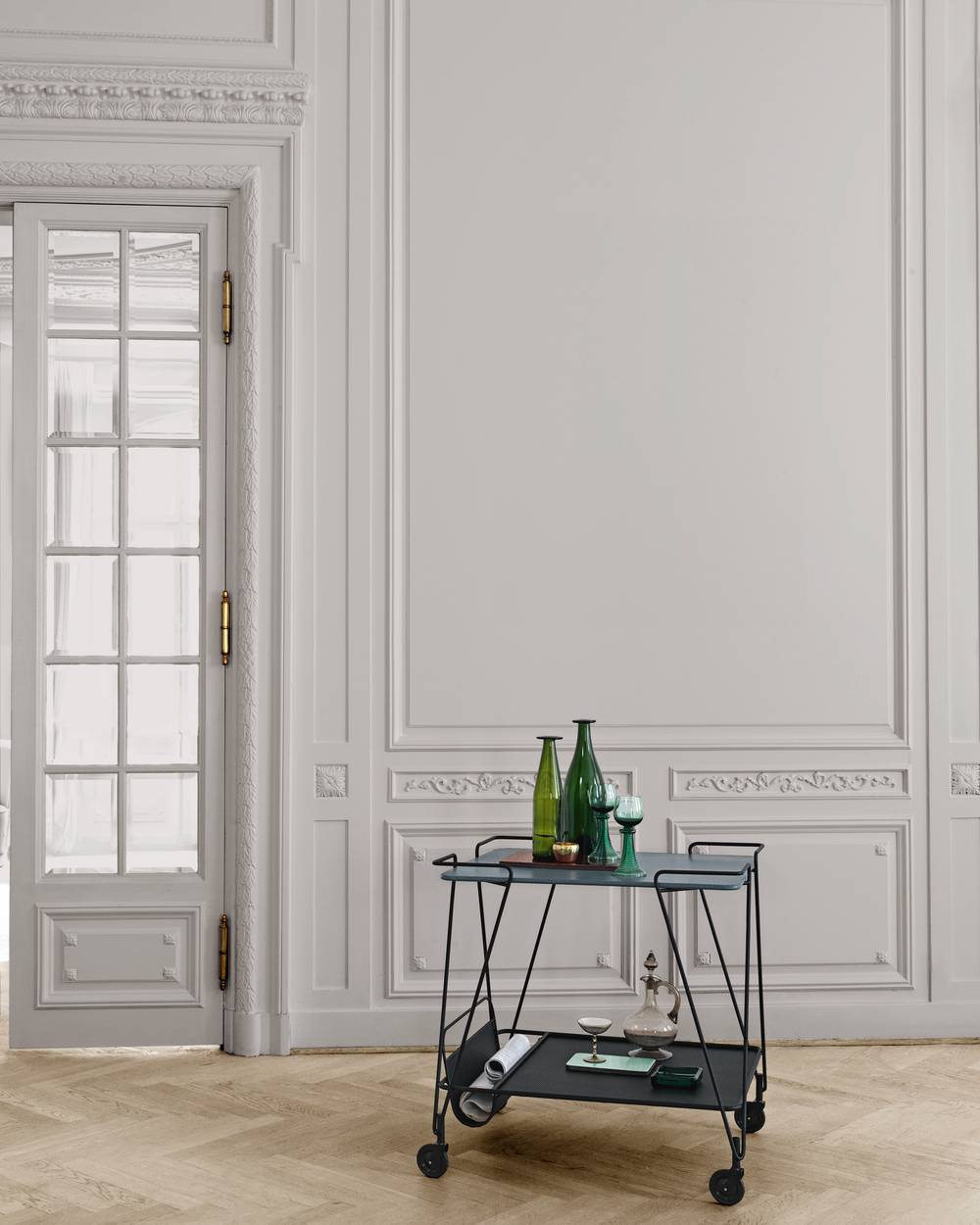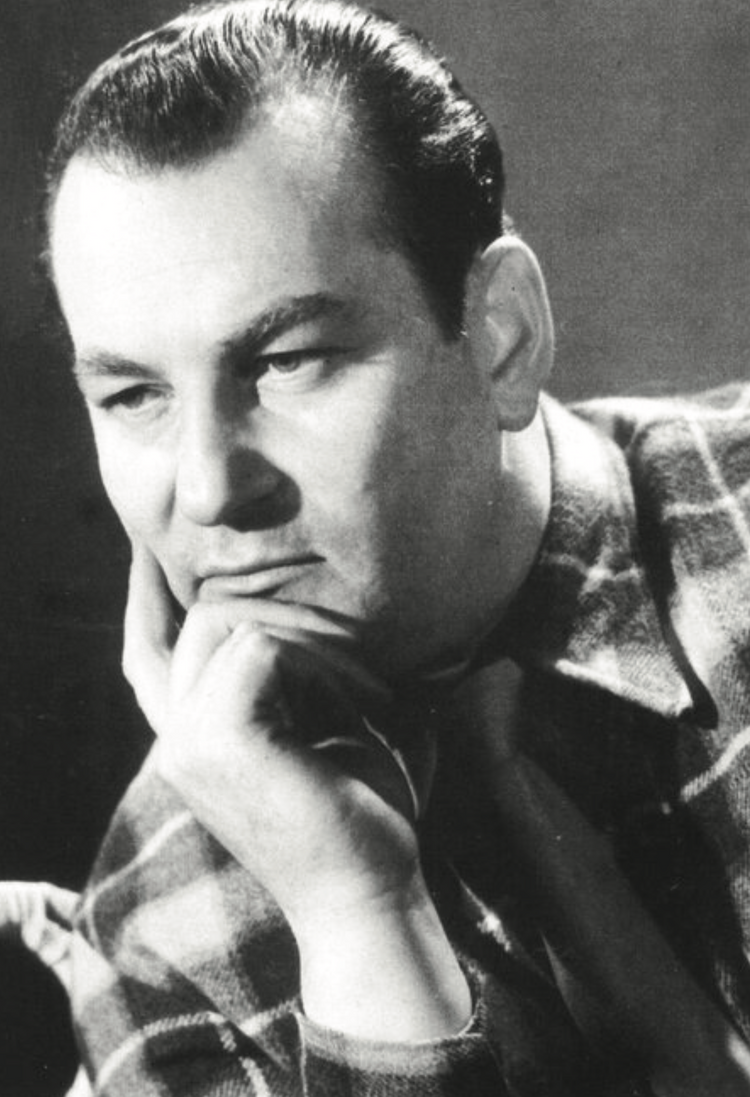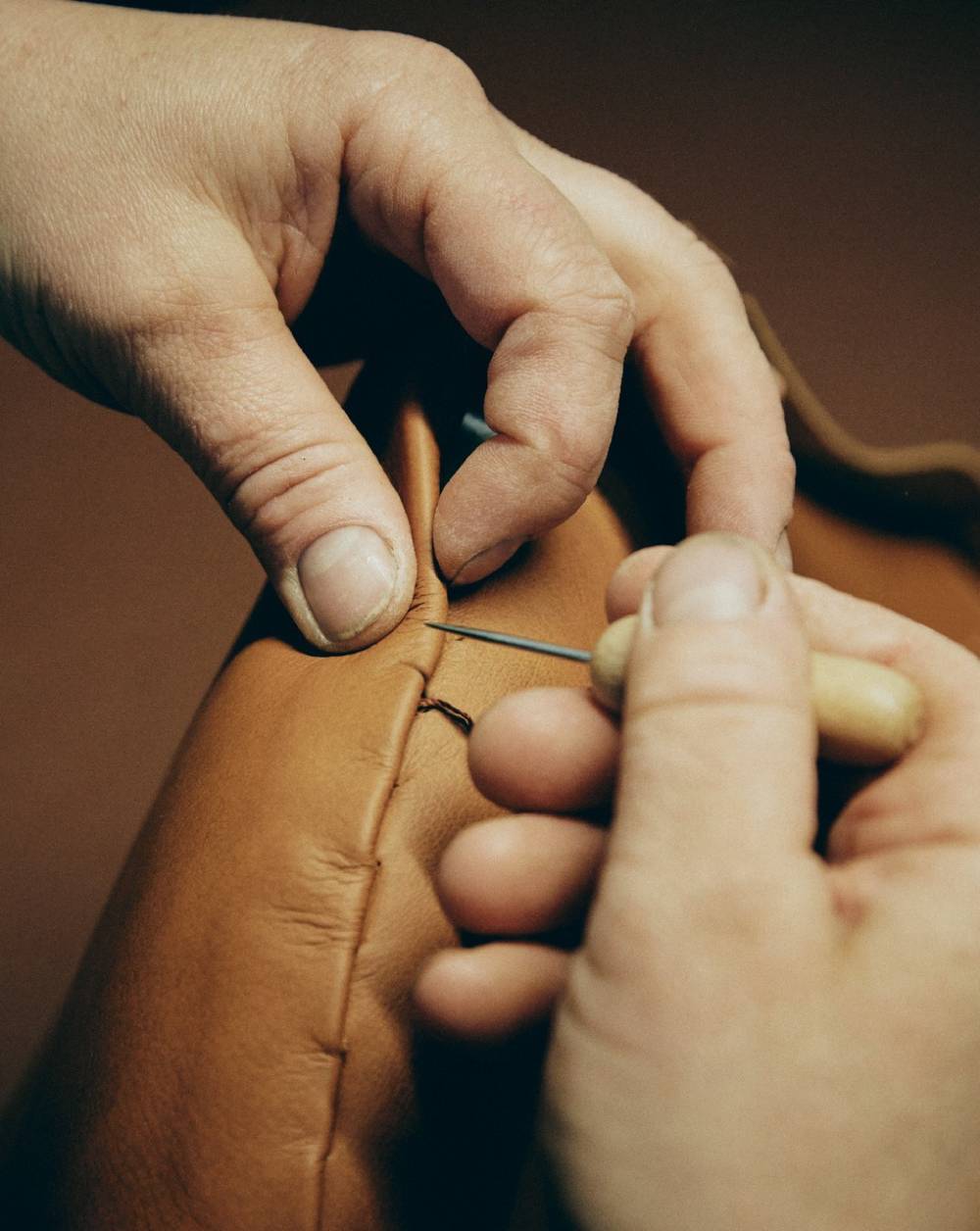Gubi • MATEGOT
Tea trolley
Metal structure and shelves. Designed by Mathieu Matégot, in 1954. Gubi edition.
The entire Gubi collection can be ordered in our physical stores.
REF. 87759
W.70,5 x H.72,5 x D.57cm
In Stock
The master and founder of the innovative and groundbreaking technique Rigitulle, where perforated metal is combined with metal tubing, Mathieu Matégot, designed his tea trolley between 1953 and 1954.
The spacious Matégot Trolley is adorned with two trays, the upper available in the different colours and the lower in black and includes a newspaper holder that proves, with its bent metal design, the technique's strength of being flexible as tulle and strong as metal. The lightness it evokes is improved by its rolling castors and makes it float along the floor.

Mathieu Matégot (1910–2001) was a versatile, independent and self-taught Hungarian designer, architect and artist who spent most of his life in Paris, where he settled in 1931 after travelling to Italy and the United States, studying at Budapest’s School of Art and Architecture and gaining experience in set design, window dressing, fashion, and tapestry.
After the war, where he was captive in Germany and first learned about the techniques and potential of sheet metal while working in a mechanical accessories plant, Matégot established a furniture workshop, initially in Paris and later in Casablanca, using materials such as rattan, glass, and Formica, but he is best known for his own ground-breaking material and technique, which he named Rigitulle, made from perforated sheet metal.
Like fabric, Rigitulle can be bent, folded and shaped, giving the furniture and home accessories he designed transparency, weightlessness and enduring modernity. Matégot patented this material and technique and set up his own production so that he could apply it to his designs. He applied his inventive approach across a range of household objects from fruit bowls, lamps and coat racks to an extensive furniture collection that still resonate with contemporary audiences and are now considered iconic.


Gubi is a Copenhagen based design house renowned for designing, developing, and marketing a daring and elegant collection of furniture, lighting and interior objects that resonates across the globe. Its signature pieces evoke emotion and tell meaningful stories that make them both timeless and enduring. Gubi brings forgotten icons of the past together with tomorrow’s classics. The result is a visionary collection that spans almost 100 years of history and is sold all over the world.
Founded by his parents in 1967 – the year that the current owner and creative director, Jacob Gubi, was born – Gubi originally focused on producing the family’s own furniture designs and trading textiles within the retail sector. Over the years, Jacob Gubi’s creative vision and courageous intuition has led Gubi to its current position in the global design scene with a handpicked edit of high-quality furniture from all over the world and collaborations with both esteemed designers and archives and contemporary emerging talents.

